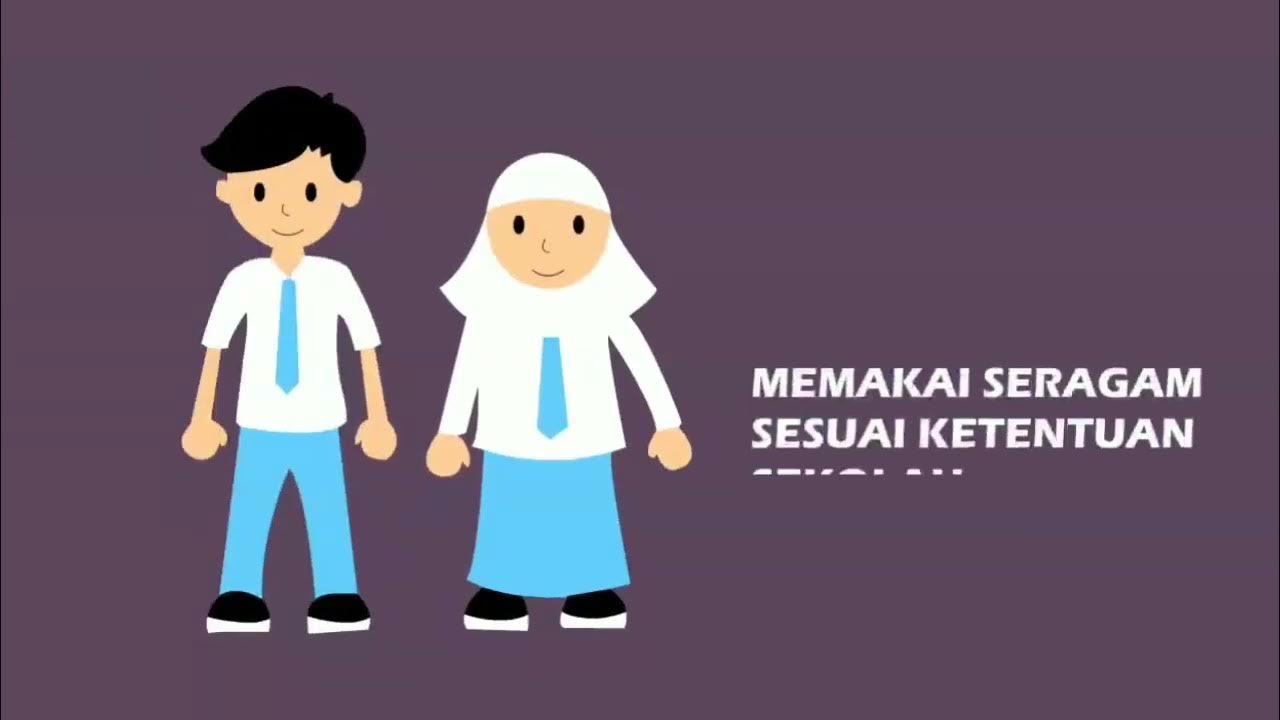Amanat Pembina Upacara Tema Sopan Santun
Summary
TLDRThe speaker, addressing a school assembly, emphasizes gratitude to God for health and the importance of discipline during ceremonies. Praising the 5C class for their performance, the speaker urges continued improvement. The key focus is on instilling good manners, such as using polite language (e.g., 'please,' 'thank you,' 'sorry'), seeking permission before borrowing items, and showing respect to teachers and others. The speaker concludes by encouraging students to practice these behaviors consistently to foster a respectful environment.
Takeaways
- 🙏 The headmaster expressed gratitude to Allah for the ability to conduct the ceremony in good health.
- 👏 The 5C class was praised for their excellent performance as ceremony officers, and they were encouraged to maintain and improve their discipline.
- 📅 Students were reminded to be more disciplined during ceremonies, specifically to follow the leader's commands and maintain proper posture.
- 🗣️ The headmaster emphasized the importance of polite behavior and speaking kindly to others.
- 🙂 Children were encouraged to use words like 'sorry,' 'please,' and 'thank you' in their daily interactions.
- 🔄 The headmaster gave examples of polite behavior, such as asking for help with 'please' and showing gratitude with 'thank you' after receiving assistance.
- 🔑 The importance of asking for permission before borrowing others' belongings was stressed, highlighting the difference between borrowing and stealing.
- 🚪 Students were urged to say 'excuse me' when entering a room or passing by teachers.
- 🏃 The headmaster advised against running past teachers without acknowledging them, promoting respectful behavior instead.
- 🤝 The headmaster encouraged students to improve their polite behavior starting from that day forward.
Q & A
What is the general theme of the speaker's message in the script?
-The speaker emphasizes the importance of discipline and respectful behavior, including following instructions during school ceremonies and practicing politeness and good manners in daily interactions.
Who is the intended audience for this speech?
-The intended audience includes the school principal, teachers, and students of SDN Sumbersari 3.
How does the speaker assess the performance of the students during the ceremony?
-The speaker praises the students from class 5C for their good performance in managing the ceremony but also points out areas for improvement in discipline among some participants.
What specific instructions does the speaker give to improve discipline during the ceremony?
-The speaker advises students to follow the leader's commands, stand at attention when instructed, and correct their resting position by slightly adjusting their legs and placing their hands behind their backs without moving.
What examples of polite behavior does the speaker provide?
-The speaker highlights the use of phrases like 'sorry,' 'please,' 'thank you,' 'excuse me,' and seeking permission before borrowing items as examples of polite behavior.
Why does the speaker emphasize the use of phrases like 'sorry,' 'please,' and 'thank you'?
-The speaker emphasizes these phrases to encourage students to be polite and respectful in their interactions, acknowledging when they need help, when they've made a mistake, and when they receive assistance.
What consequences does the speaker associate with taking something without permission?
-The speaker warns that taking something without asking is akin to stealing, reinforcing the importance of asking for permission first.
How does the speaker expect students to behave when entering a classroom?
-Students are expected to say 'excuse me' or 'permisi' when entering a classroom, especially if a teacher is present.
What specific behavior does the speaker criticize regarding how students interact with teachers?
-The speaker criticizes students who run past teachers without acknowledging them and emphasizes the importance of showing respect by saying 'excuse me' and greeting them with a smile.
What does the speaker hope to achieve with this message to the students?
-The speaker hopes that students will improve their behavior, becoming more disciplined and polite, especially in their interactions at school and in other aspects of daily life.
Outlines

This section is available to paid users only. Please upgrade to access this part.
Upgrade NowMindmap

This section is available to paid users only. Please upgrade to access this part.
Upgrade NowKeywords

This section is available to paid users only. Please upgrade to access this part.
Upgrade NowHighlights

This section is available to paid users only. Please upgrade to access this part.
Upgrade NowTranscripts

This section is available to paid users only. Please upgrade to access this part.
Upgrade NowBrowse More Related Video

Amanat Pembina Upacara, Kebersihan Lingkungan Sekolah, @birowisatakampusbiru1082

JUARA 1 LOMBA SESORAH (PIDATO BAHASA JAWA) KELAS XI MIPA 4

(Kupat) Kultum Mudupat 1446 H || Menghindari Perbuatan yang Merusak Puasa || Davin Carino Joven

PIGURA RAMADHAN SPENSIX HARI - 1

Pidato "Kebersihan Lingkungan" (Alice Tanudjaja)

SIKAP DISIPLIN DI LINGKUNGAN SEKOLAH
5.0 / 5 (0 votes)